Content
GREENER
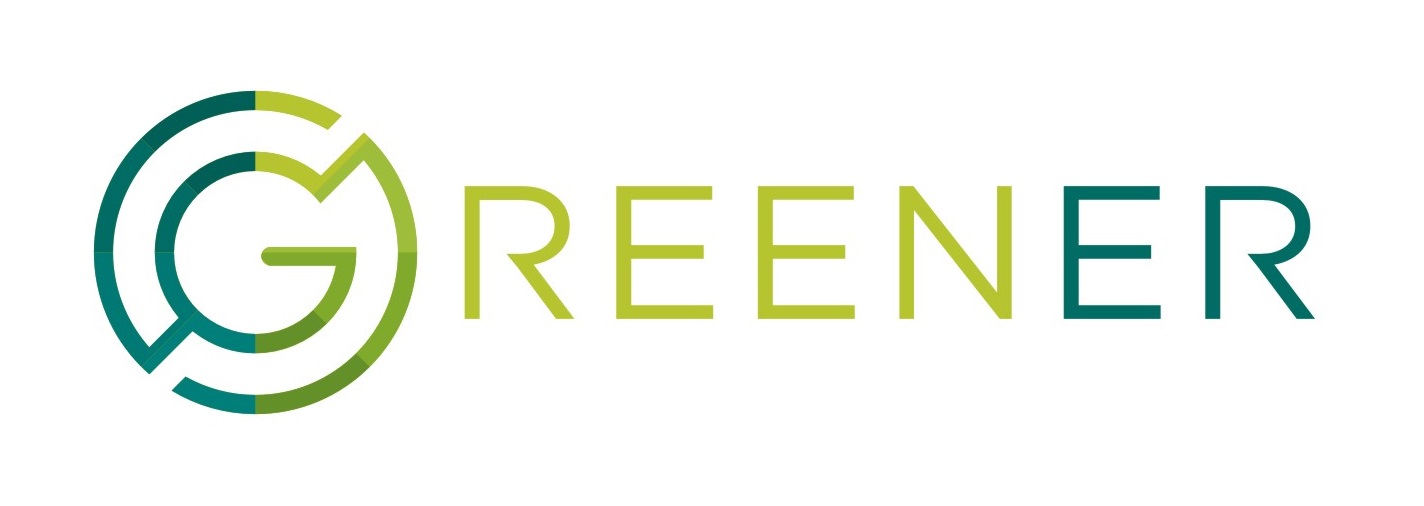 The Greener project – BoostinG industry EngagemEnt iN green pRocurement – aimed to improve the skills of procurers and administrative profiles focusing on SMEs, with regards to GPP criteria and enhancing the responsiveness of curricula of traditional profiles to the future demand of skills.
The Greener project – BoostinG industry EngagemEnt iN green pRocurement – aimed to improve the skills of procurers and administrative profiles focusing on SMEs, with regards to GPP criteria and enhancing the responsiveness of curricula of traditional profiles to the future demand of skills.
Project co-financed by the ERASMUS+ Programme of the European Union, 2020 - 2022
Highlights
The GREENER project contributed to boost SMEs involvement in Green and Circular Public Procurement (GPP/CPP). From December 2020 to November 2022, partners developed several tools to facilitate industry engagement in GPP/CPP. These include a 5 module training course to enhance knowledge of SMEs on GPP/CPP, and a toolbox providing a range of guides and examples to support Vocational Education and Training on GPP/CPP. Moreover, each partner prepared a National report detailing the current situation in their country as well as the conclusion of two workshops about GREENER project methodology and results, carried out with relevant actors on GPP.
OREN
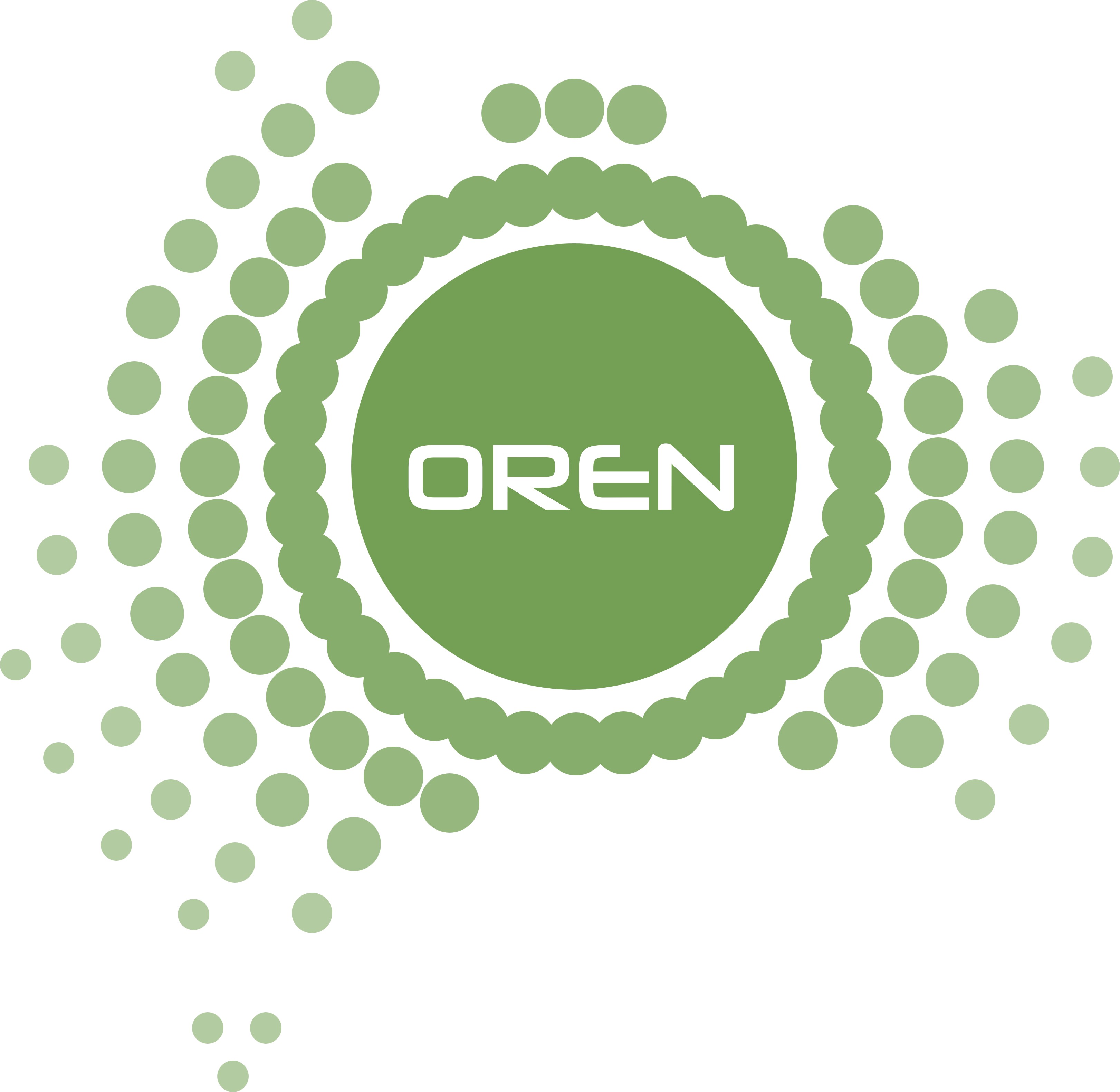 The OREN project has the objective to involve rural entrepreneurs in an interactive multi-stakeholder learning platform, which will train the participants in advanced managerial and business skills.
The OREN project has the objective to involve rural entrepreneurs in an interactive multi-stakeholder learning platform, which will train the participants in advanced managerial and business skills.
Project co-financed by the ERASMUS+ Programme of the European Union, 2020 – 2023
Highlights
Discovering European and national policy instruments, acquiring knowledge and tools to drive a positive change in rural communities, and mastering business management skills are just some of the learning objectives of the OREN online training for rural entrepreneurs. This educational journey will empower rural communities and enhance key skills for a sustainable future in the rural context. The course will be launched in April, and it will be available, for free, in 6 languages (English, Bulgarian, German, Italian, Greek and Spanish). It encompasses 25 hours of online lectures and tests for self-learning divided into 5 different modules. Register now!More information:
This email address is being protected from spambots. You need JavaScript enabled to view it.
Municipal waste management and COVID-19
Survey on the impact of the COVID-19 on municipal waste management systems
ACR+ ran a survey targeting municipal and local authorities (or their waste operators) to understand and assess the impact of the COVID-19 on their waste systems, in particular regarding the services provided, the quantities collected, health and safety measures, finances and communication to users.
The survey, combined with the collection of information and good practices, led to the identification of key trends:
- Municipal waste generation decreased in most cities, with a significant decrease of assimilated waste generated by commercial activities, that did not compensate the increase of household waste linked with lockdown measures. Likewise, touristic areas could experience important decreases.
- Municipal waste sorting performances could be maintained or even improved in many territories. However, waste authorities that had to decrease the collection service for selective collection experienced significant decrease.
- Local authorities had to prioritise waste services to adapt to the changes of waste generation and shortage of staff; civic amenity sites were closed and on-demand collection interrupted in many territories, sometimes leading to fly-tipping.
- The measures taken for the collection of potentially contaminated waste were quite different from one city to another. Some cities set specific collection routes for households with COVID-19 cases, while other only imposed specific precautionary measures.
The full report is available here. Make sure to also consult COLLECTORS Guidelines for implementation and Policy recommendations, that now includes specific sections on the COVID-19 pandemic.
![]()
This survey is conducted in the framework of H2020 COLLECTORS. This project's mainstay being to share knowledge between territories, it only took one step to use its strength and expand the exchange of experience to understanding and overcoming the challenges brought by the COVID-19 pandemic.
The COVID-19 pandemic has already had tremendous impacts on the waste sector. At first, while the pandemic was progressing and lockdowns imposed in many countries, public authorities and municipal waste operators had to rapidly adapt their waste management systems and procedures to the situation. This is when ACR+, replying to requests from its members, started collecting data on the different systems and solutions implemented with the aim of gathering and exchanging practices. This work is available on a page dedicated to what can be called the first phase, during which the priority was to provide a fast and safe answer to the questions raised by the pandemic. A summary of the trends observed amongst these practices during March is provided in the infographic below.
As the lockdown or other restrictive measures are progressively lifted, a second phase is starting and new challenges are appearing. Public authorities and municipal waste operators do not have to act to face an urgent situation but they now have to deal with the impacts of the different measures of the so-called first phase and with the necessity to re-assess the situation. Adaptation is needed once more, this time to search for stabilized operation. The crisis is also moving along the value chain reaching new actors such as recyclers. As it did during the first phase, ACR+ is gathering data on the situation in different countries to monitor the effect of the COVID-19 pandemic on different waste management systems. The aim is to gather and exchange practices, being aware that situations are diverse and dependent on the national and local constraints as well as means available.
In several countries, surveys are conducted (at national, regional or local level) to assess the situation and provide a summary and statistics on waste collection and treatment activities during the lockdowns. Currently data are available for the city of Milan, Catalonia, the Balearic Islands, England, Ireland, and France. Such information is indicated with the following pictogramme: ![]()
Note: the information is published as we received it, with the addition of the necessary sources and edition if required. Translations are made by our team and are not under the responsibility of the issuing authority or organisation. Should you want to contribute, please send an email to Paolo Marengo (This email address is being protected from spambots. You need JavaScript enabled to view it.).
Last update: 18/11/2020
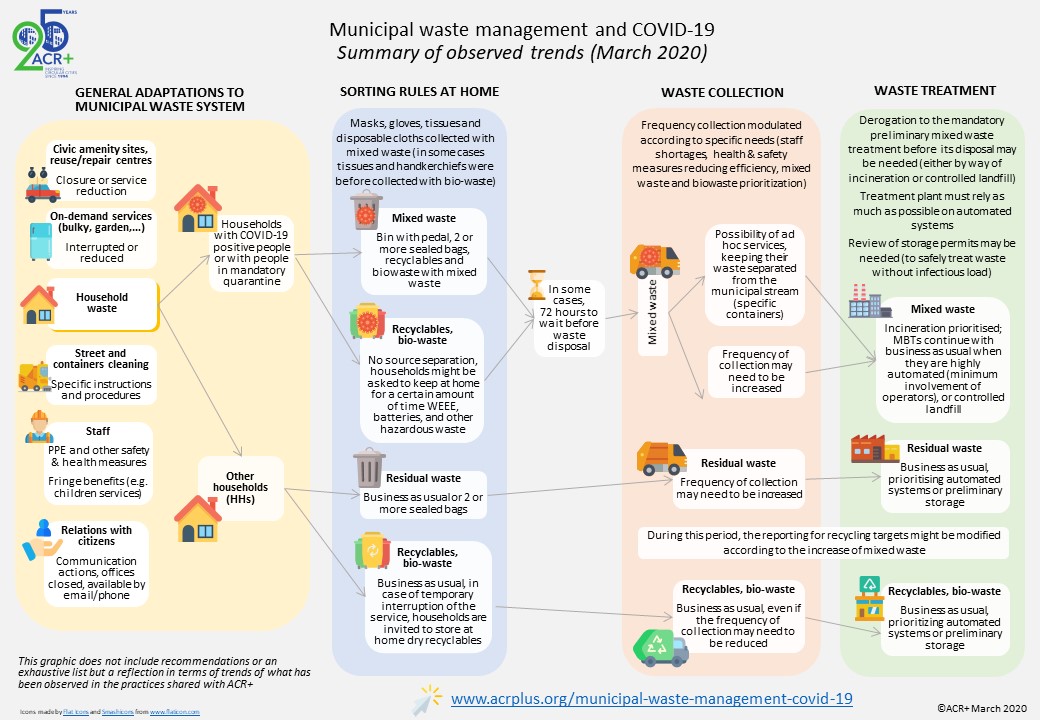 Summary of observed trends regarding municipal waste management during the COVID-19 crisis in March 2020 (click on the picture to enlarge it or download it as a pdf).
Summary of observed trends regarding municipal waste management during the COVID-19 crisis in March 2020 (click on the picture to enlarge it or download it as a pdf).
Thematic focuses
Thematic focuses
- Demolition and construction
The European Demolition Association, EDA, has prepared a specific report to analyse the impact of the COVID-19 on the European demolition companies. The report includes graphics with the information at European level and country by country, as the situation differed substantially in each part of Europe, and even week by week. Download the report: www.europeandemolition.org
- Environmental impact
The Geneva Environment Network lists relevant information, research, data issued by organisations in Geneva and around the world on the environmental origins and impacts of the COVID-19 pandemic, covering topics such as: impacts on wildlife, waste management, air pollution, climate change, biodiversity crisis, and greening economies.
Source: Geneva Environment Network
- DRS systems
Resource Recycling published on 14 April an article on the damages made by the pandemic to the supply chain for deposit materials in the US. Read the full article here.
- Recycling
On 15 May, Plastics Recyclers Europe announced that the European Plastics recycling industry is closing production due to the current market developments caused by the COVID-19 pandemic. The major problems are the lack of the demand due to the closure of converting plants and the record low prices of virgin plastics as well as the decreased activity globally.
Source: Plastics Recyclers Europe
The Bureau of International Recycling is sharing regular virus-related updates from around the world and to disseminate relevant information to the recycling industry. According to 15 May feedback, lockdowns eased and volumes begin their climb from low base. On 24 June BIR shared its concerns as activity levels remain well below normal. It notes that shutdowns and temporary stops could lead to an overall industry production loss as high as 40%.
Source: BIR
- Reuse
Reloop and Zero Waste Europe partnered to release a joint policy paper to address the situation of reusable packaging and refillable systems in light of the COVID-19 pandemic
- Single-use plastics
On 1 July 2020, the World Economic Forum published an article entitled "The plastic pandemic is only getting worse during COVID-19". It tackles the question of single-use plastics and the proliferation of plastic waste during the pandemic.
Source: World Economic Forum
- Textile
ASIRTEX, the Iberian Association of Textile Recycling, has published a report (in Spanish) on the consequences of the current pandemic on the recycling sector for textile from households, focusing mainly on Spain. It covers the following aspects: Spanish regulation and regulatory measures to cover the cost of the collection service; closure of international markets; a non-existent textile recycling and the ecological impact on landfills; proposed measures for the rescue of the textile recycling sector.
Source: ASIRTEX
EURATEX, the European Apparel and Textile Confederation, launched a survey across Europe to collect reliable figures on the impact of the virus. Data look dramatic as companies expect a 50% drop in sales and production. Employment is also at risk, given that 80% of companies are already laying off workers. More: https://euratex.eu
- Waste crime
To comply with the rules of social distance, Natural Resources Wales is using high-tech surveillance techniques to tackle unscrupulous waste operators seeking to take advantage of the Coronavirus crisis. They have turned to sophisticated drone technology and satellite cameras to help in the tracking of waste criminals. The new approach includes: using drone footage to investigate illegal waste disposal; participating and benefiting from research and tools created in partnership with the Scottish Environment Protection Agency through the Life SMART Waste Project; trialling the use of satellite imagery obtained from the European Space Agency, as well as high resolution commercial satellite data.
Source: Natural Resources Wales
- Waste shipments
Several countries accept that movement document (Annex IBs) and green listed waste (Annex VII document) to be shown electronically. This means that the carrier can present the documents on mobile phone, tablet, laptop etc. The Shipment of Waste Enforcement Actions Project (SWEAP) has compiled a list of countries that accept electronic documents.
The EU Commission has published a document to ensure a common approach to securing the continuation of waste shipments across the EU during the COVID-19 outbreak. It also made available specific information from competent authorities in Member States and specific contact details of waste shipment competent authorities in Member States.
- Zero waste
Zero Waste Europe has been analysing the impact of COVID-19 on zero waste and what can be done to keep working toward a zero waste future. They offer a FAQ on their website, answering to questions such as the impact of COVID-19 on reusable; if it has influenced separate collection and recycling; if incineration is necessary to treat waste during the pandemic; the impact on delivery services and disposables; what the industry is doing; how it affects waste pickers, etc.
Icons made by mynamepong from www.flaticon.com
TOURISME
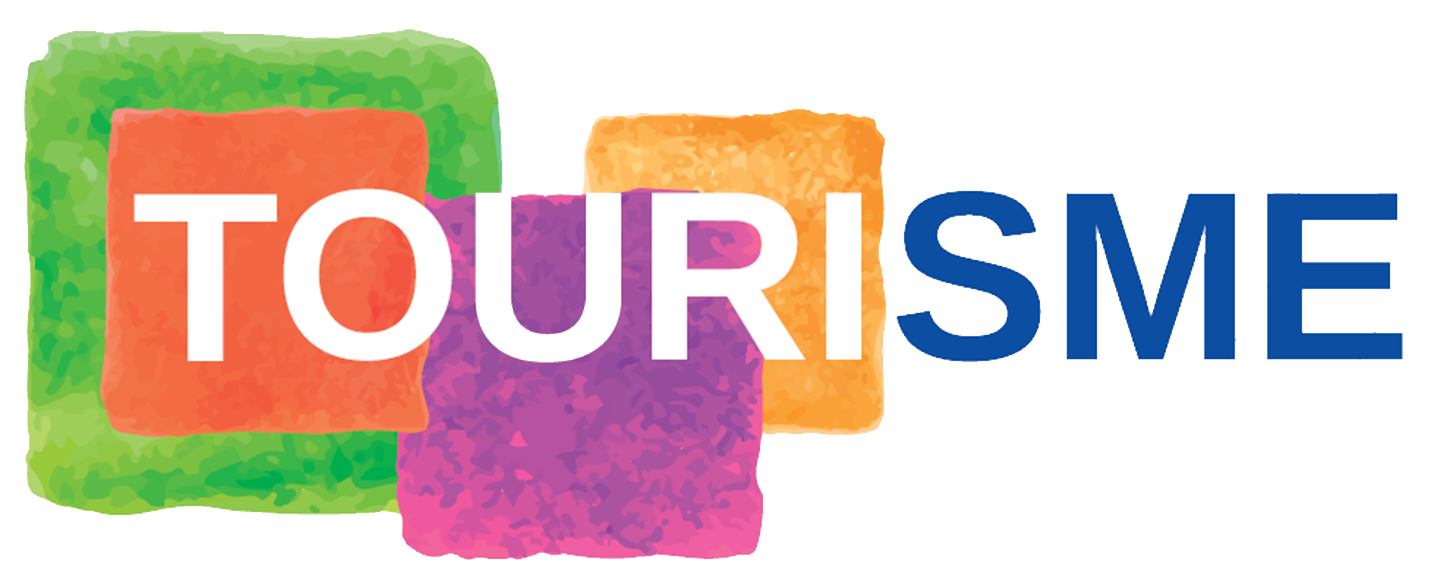 The TOURISME project – Improving sustainability of tourism SMEs through knowledge transfer, international cooperation and multi-stakeholder engagement – aims to improve the sustainability of SMEs active in the field of tourism, working closely with 62 different SMEs, located in Spain, Italy, Cyprus, and France.
The TOURISME project – Improving sustainability of tourism SMEs through knowledge transfer, international cooperation and multi-stakeholder engagement – aims to improve the sustainability of SMEs active in the field of tourism, working closely with 62 different SMEs, located in Spain, Italy, Cyprus, and France.
Project co-funded by the European Commission under the COSME programme, 2020 - 2023.
Highlights
TouriSME came to an end, after 3.5 years of activities, providing 16 trainings courses and 6 matchmaking events to its beneficiaries. The project guided 65 SMEs in the tourism sector on their path for more sustainability and lead 26 of these to obtaining an environmental certification. ACR+ produced several podcasts with key stakeholders to bring to you the key learnings of the project in an interactive format.
More information:
This email address is being protected from spambots. You need JavaScript enabled to view it.
This email address is being protected from spambots. You need JavaScript enabled to view it.
Municipal waste management and COVID-19 - Webinars
The current pandemic of the novel coronavirus, COVID-19, raises questions and brings challenges regarding municipal waste management practices and procedures (safety and health measures for employees, waste treatment requirements, general procedures due to coronavirus for waste sector). Since the beginning of the crisis, several webinars have been organised on the topic. You will find below a selection of those whose recordings are accessible to all. If the webinar you have organised is not included in this list, please send an email to Gaëlle Colas (This email address is being protected from spambots. You need JavaScript enabled to view it.).
LWARB hosted this webinar to share knowledge on its COVID-19 research projects. It features insights on; A study to predict the impact of COVID-19 on commercial waste volumes and composition within London; Learnings from London waste authorities’ responses to the need to protect waste and recycling services during the March 2020 COVID-19 lockdown; and; An extension to the waste compositional study conducted as part of the ‘Making recycling work for people in flats’ project, to look at the impact COVID-19 measures have had on waste volumes and composition in purpose built flats.
This series, jointly organized by UN-Habitat and the Wuppertal Institute for Environment, Climate, Energy under the Urban Pathways project, includes four webinars: Challenges and Opportunities of Municipal Solid Waste Management; Adapting Municipal Solid Waste Systems; Workers' Safety; Managing Medical and Special Waste. Recordings, presentations, and a written summary are available.
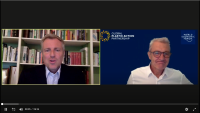
This webinar organised by Zero Waste Europe brought together waste and health experts to assess the impacts that the COVID-19 virus is having on zero waste policies and strategies in Europe. It examined whether governments can simultaneously prioritise the health and protection of their citizens, whilst also progressing towards their local zero waste agenda.
At this online roundtable organised by the International Solid Waste Association (ISWA) the speakers, from the ISWA Board and Scientific & Technical Committee, discussed waste management in these unprecedented times.
Webinar in Italian organised by AICA and ERICA. A summary of the webinar is available, including the main points of each speaker and the questions asked by the audience.
Webinar in Italian organised by AICA and ERICA. A summary of the webinar is available with the main points of each speaker.
The Spanish association Fertile Auro organised a webinar on community composting during the COVID-19 offering the opportunity to hear the opinion of expert microbiologists and to share the guidelines and modifications of the maintenance and management protocols of these areas that have been implemented by different territories of the Basque Country and Galicia.
The Spanish association Fertile Auro organised a webinar on the differentiated management of municipal waste. It focused on door-to-door collection systems implemented in different municipalities of the Basque Country, Catalonia and Valencia to see how they have dealt with this situation.





 European Union
European Union Austria
Austria Belgium
Belgium Canada
Canada Croatia
Croatia Czech Republic
Czech Republic Estonia
Estonia Finland
Finland France
France Germany
Germany Great-Britain
Great-Britain Ireland
Ireland Israel
Israel Italy
Italy Lebanon
Lebanon Luxembourg
Luxembourg The Netherlands
The Netherlands Norway
Norway Palestine
Palestine Peru
Peru Portugal
Portugal Serbia
Serbia Slovakia
Slovakia Slovenia
Slovenia Spain
Spain Sweden
Sweden Switzerland
Switzerland Turkey
Turkey USA
USA